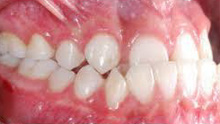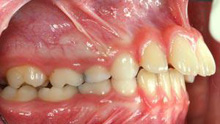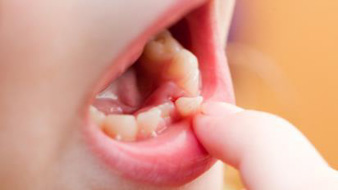Dentalpro advocates an early start in children's dental care. We also understand the importance of delivering the care under the most ideal environment and by a qualified Specialist trained in the field of Paediatric Dentistry.
See Paediatric Dental Specialist Profile
What is Paediatric Dentistry
Paediatric Dentistry is a branch of dentistry that deals with children from birth to adolescent (0- 17 years). Paediatric Dentistry places special importance in preventing tooth decay and focuses on the maintenance of primary teeth (baby teeth) in younger children until the teeth are naturally lost.
In small children, the maintenance of space for the eventual eruption of the permanent teeth is very important as it plays a role in a child’s speech development.
Apart from providing dental treatment, a Paediatric Dental Specialist promotes the dental health of children directly to the children as well as serves as educational resources for parents.
Through Paediatric dentalcare, children can also be taught to chew properly and therefore maintain proper nutrition. Studies have shown that poor oral health care in children can lead to impaired school performance and poor social relationships.
Common Teeth Problems for Children



Carries

What is caries?
Bad tooth, rotten tooth, black tooth
Due to
- Poor oral hygiene (irregular or brushing of teeth)
- High sugar diet
- Prolonged bottle feeding at night
How to prevent
- Brushing with fluoridated toothpaste at least twice a day.
- Avoid or reduce sweet foods in between meals.
- Visit dentist regularly ie. every 6 months.


Retained primary teeth (milk teeth)
- May cause malocclusion
- Needs to extract the tooth


Malocclusion
How To Prevent
- Get regular check up to monitor dental development
- Paediatric Dentist can detect malocclusion at the early stages and refer to respective specialist for early intervention.



Trauma
Cases of trauma requires immediate treatment as untreated cases may affect children’s dental development.
When children enter adolescent, the role of paediatric dentist changes. As the importance of appearance and self-image in the older children start to grow, a Paediatric Dentist will ensure that adolescents’ dental needs are met.
At this stage preventative dental health care is emphasized and when necessary, information is provided on subjects such as wisdom teeth, tobacco use, sealants and oral piercing.




Dentalpro advocates an early start in children's dental care. We also understand the importance of delivering the care under the most ideal environment and by a qualified Specialist trained in the field of Paediatric Dentistry.
See Paediatric Dental Specialist Profile
What is Paediatric Dentistry
Paediatric Dentistry is a branch of dentistry that deals with children from birth to adolescent (0- 17 years). Paediatric Dentistry places special importance in preventing tooth decay and focuses on the maintenance of primary teeth (baby teeth) in younger children until the teeth are naturally lost.
In small children, the maintenance of space for the eventual eruption of the permanent teeth is very important as it plays a role in a child’s speech development.
Apart from providing dental treatment, a Paediatric Dental Specialist promotes the dental health of children directly to the children as well as serves as educational resources for parents.
Through Paediatric dentalcare, children can also be taught to chew properly and therefore maintain proper nutrition. Studies have shown that poor oral health care in children can lead to impaired school performance and poor social relationships.
Common Teeth Problems for Children
Carries
What is caries?
Bad tooth, rotten tooth, black tooth
Due to
How to prevent
Retained primary teeth (milk teeth)
Malocclusion
How To Prevent
Trauma
Cases of trauma requires immediate treatment as untreated cases may affect children’s dental development.
When children enter adolescent, the role of paediatric dentist changes. As the importance of appearance and self-image in the older children start to grow, a Paediatric Dentist will ensure that adolescents’ dental needs are met.
At this stage preventative dental health care is emphasized and when necessary, information is provided on subjects such as wisdom teeth, tobacco use, sealants and oral piercing.